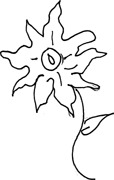


He is impossible to kill. A million bad adaptations cannot pierce the armor around his reputation. No one can deny the majesty of his work. He is the greatest playwright of the English language. Even in this illiterate age of reality TV and the interweb, we all know Hamlet and his dilemma. Macbeth and his terrible crimes. Romeo and Juliet and their mad, doomed love. The truth is, he knew much about humanity and what makes us human and was able to brilliantly and poetically communicate these deep draughts seemingly with infinite ease and wit. The sonnets are divided into several sets. Some written to a man, some written to “The Dark Lady.” We are not about or able to unravel the whys and wherefores here. “The play’s the thing,” but Shake was also a prolific poet. His wry take on love and his towering way with words are given full play in his poetry. The plays were stepped on, cut, redacted, and rewritten freely by actors and many others. The sonnets are all his and all ours to hold like a precious flower. Just let the master take you there. Pour some mead and hike up your merkin.
Sonnet 18: Shall I Compare Thee to a Summer’s Day?
Shall I compare thee to a summer’s day?
Thou art more lovely and more temperate.
Rough winds do shake the darling buds of May, And summer’s lease hath all too short a date.
Sometime too hot the eye of heaven shines, And often is his gold complexion dimmed; And every fair from fair sometime declines,
By chance, or nature’s changing course, untrimmed; But thy eternal summer shall not fade,
Nor lose possession of that fair thou ow’st, Nor shall death brag thou wand’rest in his shade,
When in eternal lines to Time thou grow’st.
So long as men can breathe, or eyes can see,
So long lives this, and this gives life to thee.
Love is too young to know what conscience is;
Yet who knows not, conscience is born of love?
Then, gentle cheater, urge not my amiss,
Lest guilty of my faults thy sweet self prove.
For thou betraying me, I do betray
My nobler part to my gross body’s treason;
My soul doth tell my body that he may
Triumph in love; flesh stays no farther reason,
But rising at thy name, doth point out thee
As his triumphant prize. Proud of this pride,
He is contented thy poor drudge to be,
To stand in thy affairs, fall by thy side.
No want of conscience hold it that I call
Her “love,” for whose dear love I rise and fall.